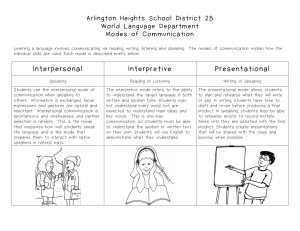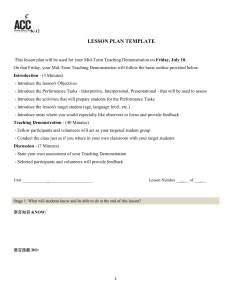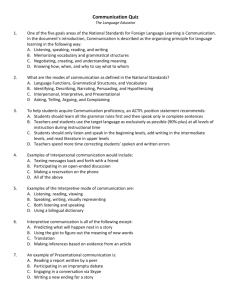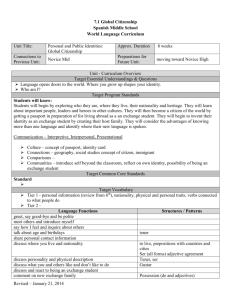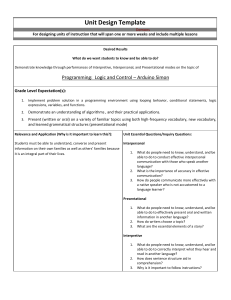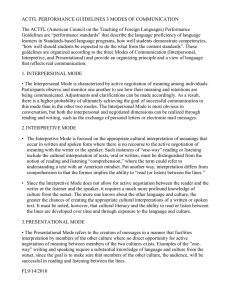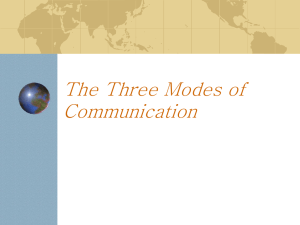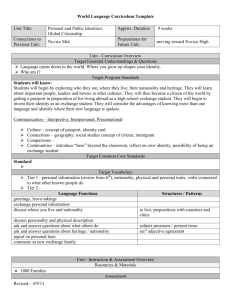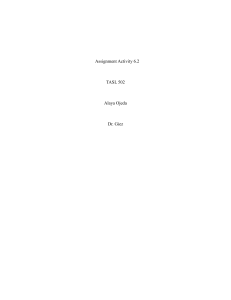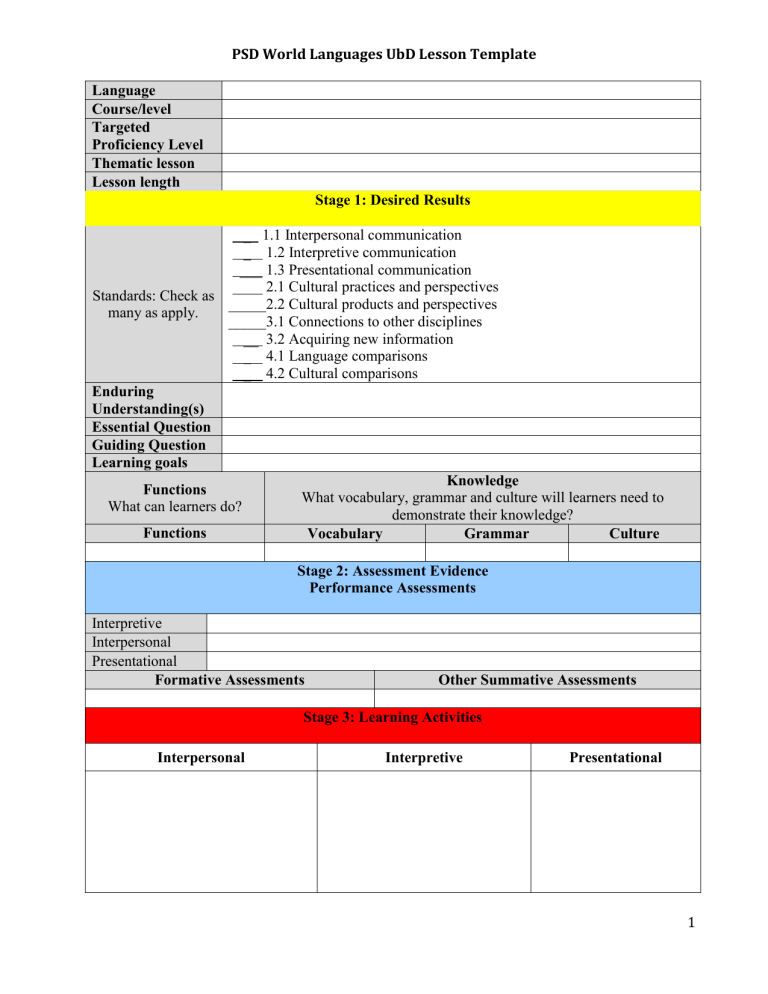
PSD World Languages UbD Lesson Template Language Course/level Targeted Proficiency Level Thematic lesson Lesson length Stage 1: Desired Results _ 1.1 Interpersonal communication _ 1.2 Interpretive communication ___ 1.3 Presentational communication 2.1 Cultural practices and perspectives Standards: Check as _____2.2 Cultural products and perspectives many as apply. _____3.1 Connections to other disciplines __ 3.2 Acquiring new information _ 4.1 Language comparisons _ 4.2 Cultural comparisons Enduring Understanding(s) Essential Question Guiding Question Learning goals Knowledge Functions What vocabulary, grammar and culture will learners need to What can learners do? demonstrate their knowledge? Functions Vocabulary Grammar Culture Stage 2: Assessment Evidence Performance Assessments Interpretive Interpersonal Presentational Formative Assessments Other Summative Assessments Stage 3: Learning Activities Interpersonal Interpretive Presentational 1 Lesson Learning Activities Anticipatory set Grab students’ attention. These are actions and statements by the teacher to relate the experiences of the students to the objectives of the lesson, To put students into a receptive frame of mind. • To focus student attention on the lesson. • To create an organizing framework for the ideas, principles, or information that is to follow (advanced organizers) An anticipatory set is used any time a different activity or new concept is to be introduced. Procedures (Include a play-by-play account of what students and teacher will do from the minute they arrive to the minute they leave your classroom. Indicate the length of each segment of the lesson. List actual minutes.) Indicate whether each is: -teacher input -modeling -questioning strategies -guided/unguided: -whole-class practice -group practice -individual practice -check for understanding Closure Those actions or statements by a teacher that are designed to bring a lesson presentation to an appropriate conclusion. Used to help students bring things together in their own minds, to make sense out of what has just been taught. “Any Questions? No. OK, let’s move on” is not closure. Closure is used: To cue students to the fact that they have arrived at an important point in the lesson or the end of a lesson. To help organize student learning 2 Assessment How will you know if students met the learning targets? Write a description of what you were looking for in each assessment. Resources Learner Targets Interpretive I can… Interpersonal I can… Presentational I can… Post Lesson Reflection 1. To what extent were lesson objectives achieved? (Utilize assessment data to justify your level of achievement) 2. What changes, omissions, or additions to the lesson would you make if you were to teach again? 3
